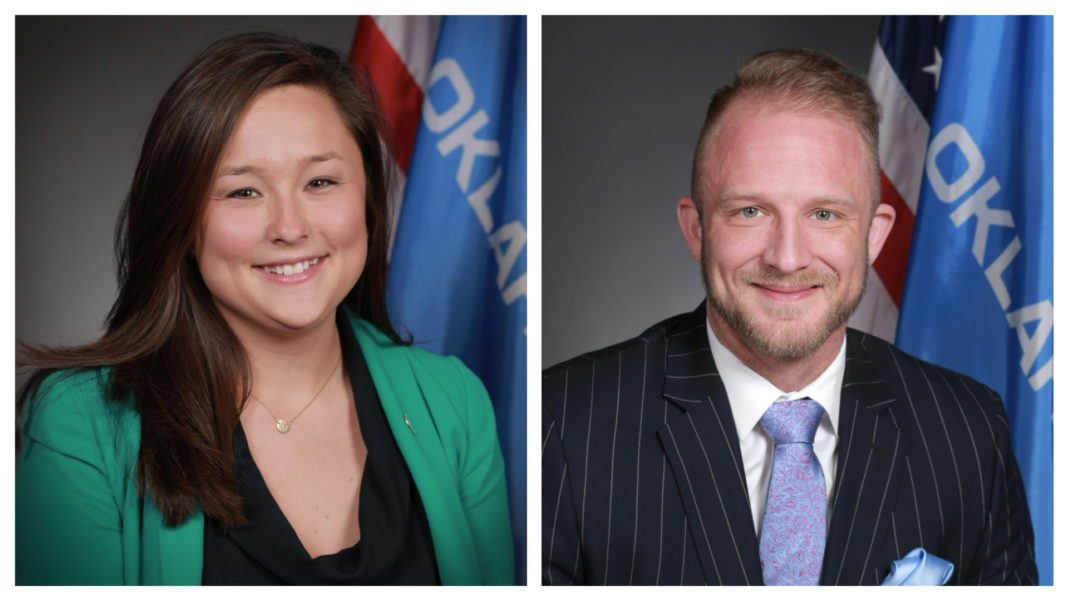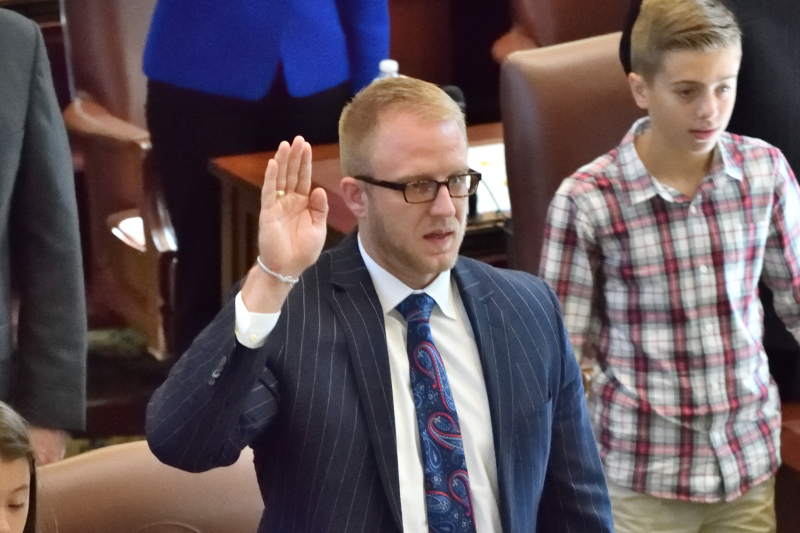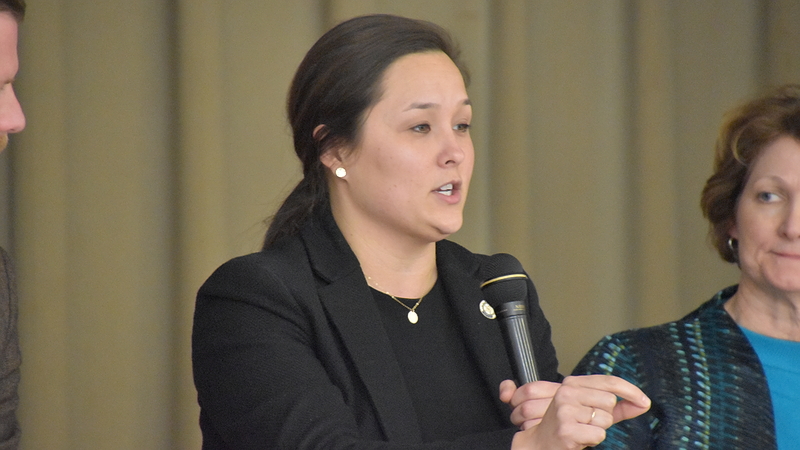Last Updated on December 6, 2020, 9:23 PM | Published: December 6, 2020
Democratic House Members Collin Walke (HD-87) and Cyndi Munson (HD-85) have been serving in the Oklahoma House of Representatives for nearly five years.
Munson and Walke’s districts share a boundary and together cover the core of Oklahoma City’s northwest side.
Both candidates won their elections with over 55% of the vote and have been strong voices for the Democrats party in Oklahoma.
The next two years will bring on a new set of challenges as the representatives will be joining an even smaller number of Democrats—19 to be exact—in Oklahoma’s House, all while trying to act fast to help Oklahoma during the pandemic.
The representatives spoke to Free Press over the phone to discuss what’s next for House Democrats.
What’s next?
Representative Walke explained that there are many issues that both Republicans and Democrats can work together on to address.
“I think there is still an opportunity to have more progressive policies instituted because there’s a large overlap between where the left and right can meet on certain issues,” he said.
Walke highlighted how in the past Democrats and Republicans have worked together on criminal justice reform and he even mentioned that his efforts to enact data privacy laws in Oklahoma would garner support from both sides.
“[Data privacy] is something that both Democrats and Republicans can get behind because without privacy you can’t have liberty and without liberty you can’t have freedom,” Walke said.
While Democrats can still be effective as lawmakers through collaboration, it’s also worth noting that being in the minority is nothing new to the party, and Representative Munson understands this very well.
“Whether [the Democrats] had gained new seats or not, it would have been difficult [to get anything passed],” she said.
“We have been in the minority ever since I’ve been elected [in 2015], and so, you know, our main focus, no matter what the numbers are, is to make sure we keep elevating the issues that are important to Oklahomans.”
Medicaid expansion
One of those important issues is medicaid expansion. When State Question 802 passed in June by a slim margin, it inscribed medicaid expansion into the state’s constitution.
This means Oklahoma will now use funds from the Affordable Care Act to expand medicaid coverage.
Those who opposed the ballot measure expressed concerns about how the state would find the money to match the funds that the Affordable Care Act will be allotting to the program.
To understand more about the opposition to the state question, read our interview with Representative-elect Stephanie Bice.
Munson explained that what makes securing the financial support for medicaid expansion so crucial is the context in which the funding is framed.
There were many disagreements while creating next year’s budget as Governor Stitt’s vetoes against proposed budget measures were counteracted by votes in the house and senate.
However, the budget will still be smaller next year than this year.
So, with an even smaller budget for 2021, the required funding for medicaid expansion guaranteed by State Question 802 could be politicized and used as a reason for why funding is taken away from other services.
“We can’t say because we have to fund medicaid, we’re going to cut education [and other services],” Munson went on to say.
This will make next year’s legislative session even more crucial as the budgets for many public service’s could be slashed.
“We are not in a position to cut anywhere. So when you ask where you do I see cuts coming from, I don’t know because we need more money, not less money in state government at this stage,” Walke said.
The pandemic
More state-funded pandemic assistance would be virtually impossible to guarantee given Oklahoma’s tight budget, but local legislatures, mostly Democrats, are helping combat the pandemic in other ways by pushing for a statewide mask mandate.
Governor Stitt has insisted that he will not enact a statewide mask mandate and is leaving that call for local municipalities to make.
Oklahoma has reached record-high COVID-19 daily case numbers and, in total, the state has reported over 200,000 cases.
“We’re just now getting into the Winter season,” Walke said. “We’re seeing hospitalizations go up and up every single day and that’s not going to get better until we take the steps to actually decrease the amount of positive cases we have.”
“It’s sad to say, but I think there’s a critical limit and for whatever reason, [Governor] Stitt thinks that we haven’t’ hit that limit yet.”
Munson even mentioned that she has had to help her constituents with unemployment issues.
“I don’t know how much louder we have to get, all of us, in order for the Governor to understand that it’s important to put these measures in place,” she said.
The 58th Legislature
The first legislative session begins February 1 and in the meantime lawmakers have until January 21 to introduce bills.
Munson previewed some bills that she plans to personally author including ones that focus on sexual assault and childhood trauma.
Walke plans to aim his efforts towards criminal justice reform, data privacy, and repealing state prohibition on municipalities setting minimum wages.
Alex Myers is a freelance reporter based in Oklahoma City. He will be covering political races in the OKC metro for Free Press through the General Election.












